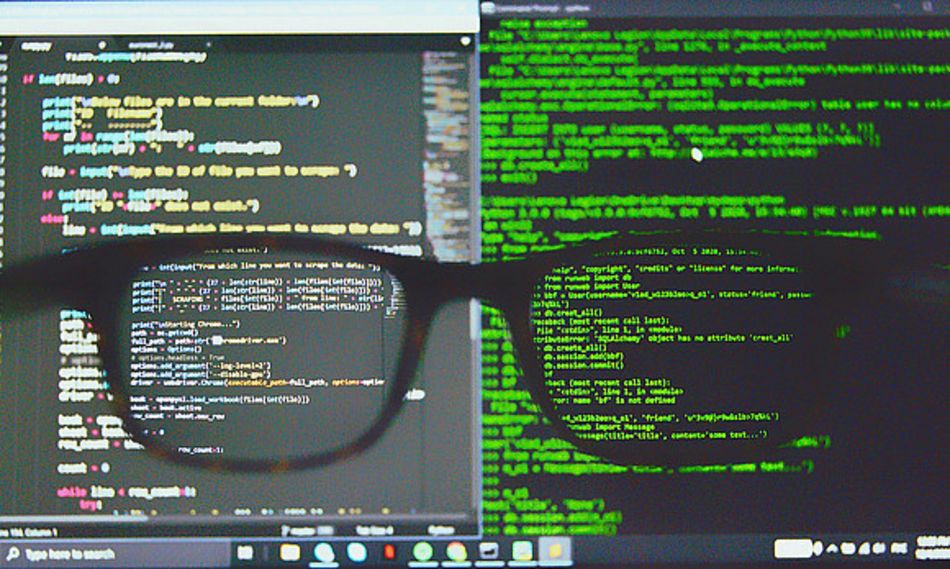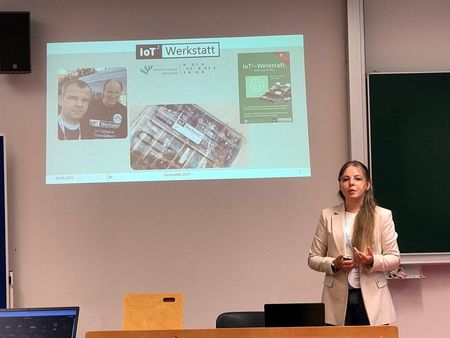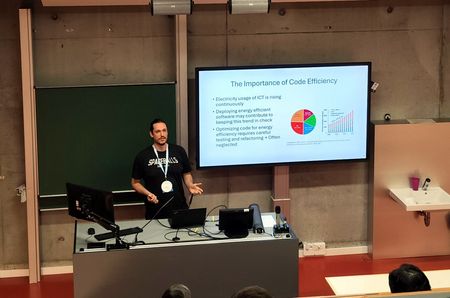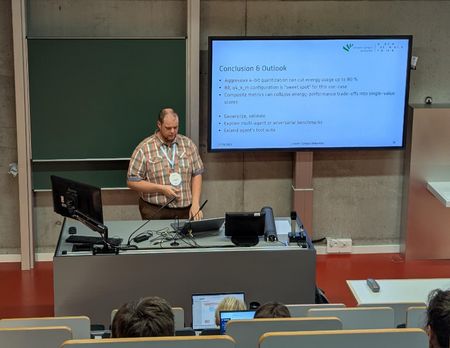
At this year's EnviroInfo Conference, in conjunction with Informatik2025, members of the Institute for Software Systems at Umwelt-Campus Birkenfeld presented a total of five publications that promote the topic of sustainability in computer science in a practical manner. Topics included energy performance trade-offs of LLM-based agents, the development of a toolbox for the practical application of evaluation criteria, indicators and metrics for evaluating the environmental impact of software products, a citizen science approach to flood measurement and its AI-supported resource optimization, the optimization of source code energy efficiency with LLM-based agents, and AI-supported biodiversity monitoring for insects. In addition, members of the Green Software Engineering working group are involved as chairs, on the program committee, and in the organization of the special track “Green Coding.” The corresponding papers will be published in the conference proceedings by Springer and the Lecture Notes in Informatics (LNI) series of the German Informatics Society, respectively.



You are leaving the official website of Trier University of Applied Sciences